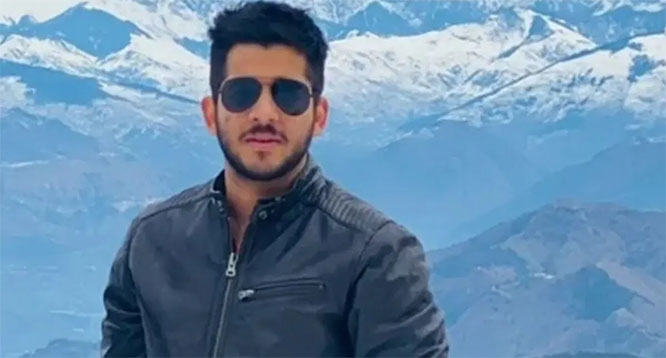
Chicago, September 8: ?Setting foot in a hospital again, Emily and Mike Jordan couldn't help but feel anxious.
More than two years before, at age 29, Emily had been diagnosed with cervical cancer. But just before she was to undergo a radical hysterectomy, she was told that she was pregnant.
Faced with saving her own life or their unborn child's, the young couple made the excruciating decision to go forward with her surgery. It meant losing the baby, and forfeiting any chance at having their own children.
Or so they thought.
“I can't describe what that was like after finding out you have cancer, after finding out your chance of ever carrying a baby is gone,” Emily says, still stammering at times as she recounts that painful day in 2010.
Simply put, her body no longer had a place where a baby could grow.
But now, more than two years later, she and Mike had come from their suburban Chicago home to the labour and delivery department of a downtown hospital to realise the dream they thought was lost — to become parents, though not the way they, or most people, would have imagined.
Alongside them that day was Emily's mother, Cindy Reutzel — a fit, silver-haired 53-year-old grandmother whose profile revealed a round belly, a pregnant belly.
Reutzel was about to give birth to her own grandchild.
Just 34 years ago, Louise Brown, the first “test tube” baby, was born in Great Britain. The result? A veritable in-vitro baby boom.
It started with would-be mothers in their 20s and 30s. “Then people started pushing the envelope,” says Dr Helen Kim, director of the in vitro
fertilisation programme at the University of Chicago. “If you could help a menopausal woman in her 30s, could you help a menopausal woman in her 40s? And then it became, ‘Can you help a menopausal woman in her 50s?'
“And the answer is yes.”
Some older women were having their own babies. But more often, they were using egg donors to have their own children, or serving as surrogates or “gestational carriers”.
There was the 51-year-old grandmother in Brazil who gave birth to her twin grandchildren in 2007. There've been others, grandmothers in their 40s or 50s and even 60s.
Cindy Reutzel, Emily's mom, had a vague recollection of those stories. So when doctors shared the good news that they had been able to keep Emily's ovaries intact, Reutzel immediately made the offer.
“What if I carried your baby for you?” she asked.
Emily and Mike didn't take it too seriously at first. “We didn't really think that was a realistic option,” says Emily, who works in hospital administration.
It turned out, though, that it wasn't really that far-fetched after all, particularly for a young grandmother who's in good health, like Reutzel.
After a process that included psychological evaluation and hormonal manipulation to prepare their bodies, Kim eventually implanted Reutzel's uterus with an embryo created with an egg from Emily and Mike's sperm.
It was no easy process, with a regimen of hormonal shots. Work schedules were interrupted and vacations postponed. But Reutzel was committed.
“The thought of Emily and Mike not being able to have children and share that piece of their lives with someone just broke my heart,” says Reutzel, who lives in Chicago and is executive director at medical foundation. “I want Emily to have that connection with another human being like I had with her.”
As her belly grew, people started asking about “her baby”. But she was quick to tell them the story. This was not her baby, she was Grandma.
Admittedly, she says, she worried about the physical toll pregnancy might take, though her body handled it better than she expected. She also wondered how well she'd bounce back from a Caesarean section. That's how she had delivered Emily and her older brother, but that had been three decades ago.
Still, she reassured Emily and Mike throughout the pregnancy that the baby was fine, she was fine, everything would be fine.
Humour helped. Mike often teased his mother-in-law each time they'd take her to dinner or do something nice for her.
“Are we even yet?” he'd ask.
“Not yet,” she'd reply, laughing.
In truth, Mike and Emily knew there'd really be no way to repay this kind of gesture.
“This is a continuation of everything that she has done her entire life for me, which is to make sure that I have the best life possible,” Emily says.
All they could do, they said, was to promise to raise their baby as best they could. And that was enough for Reutzel.
“I know I gave a gift,” she says. “But I'm also getting so much in return.”
Last week, a few days after Emily's 32nd birthday, daughter sat next to mother, holding hands in the delivery room.
And Elle Cynthia Jordan was born.
“She looks just like you! She looks just like you!” Emily shouted, running from the delivery room to introduce their newborn to Mike.
Reutzel is recovering well. She even says she'd consider doing it again.
“When I watch both of them hold that baby and look into her face, it's like everything I could have imagined wanting for them — better than I could have imagined,” she says, her eyes filling with tears.
“This is what it was all about for me.”







Comments
Add new comment